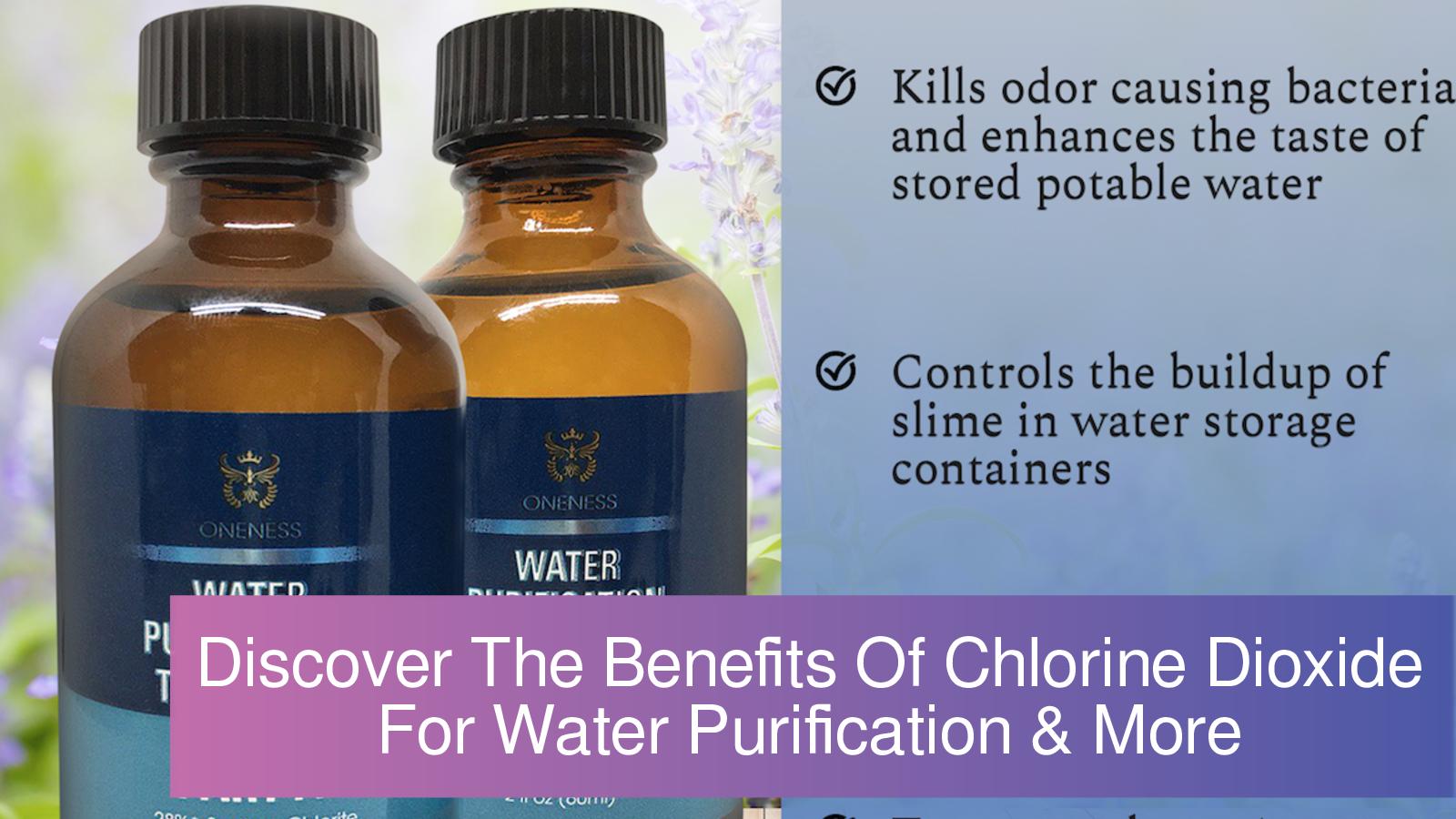The Benefits of Chlorine Dioxide – Unlocking its Potential
Chlorine dioxide is a powerful and versatile chemical compound that offers numerous benefits across various industries. From water treatment to food processing, this remarkable substance has proven its efficacy in disinfection, odor control, and oxidation processes. In this article, we will delve into the benefits of chlorine dioxide and explore how it can be utilized to improve various aspects of our lives.
Enhancing Water Treatment
One of the primary applications of chlorine dioxide is in water treatment. Unlike traditional chlorine, chlorine dioxide does not produce harmful byproducts such as trihalomethanes (THMs) when reacting with organic matter. This makes it a safer and more effective choice for disinfecting drinking water, swimming pools, and wastewater.
Furthermore, chlorine dioxide is highly effective against a broad spectrum of microorganisms, including bacteria, viruses, and protozoa. Its ability to penetrate biofilms and destroy harmful pathogens makes it an ideal solution for ensuring water safety and preventing waterborne diseases.
Eliminating Odors
Another remarkable benefit of chlorine dioxide is its exceptional odor-control properties. It is widely used in industries such as wastewater treatment, pulp and paper manufacturing, and food processing to eliminate foul odors caused by organic compounds.
Chlorine dioxide works by oxidizing the odor-causing substances, breaking them down into odorless compounds. This not only eliminates unpleasant smells but also improves the overall air quality in these environments. Its effectiveness in neutralizing odors has made it a preferred choice for deodorizing various industrial and commercial spaces.
Efficient Oxidation
Chlorine dioxide’s strong oxidation potential makes it a valuable tool in a wide range of applications. It can effectively remove color, taste, and odor-causing compounds from water and wastewater, making it an essential component in the treatment of polluted water sources.
Additionally, chlorine dioxide is widely used in the bleaching of pulp and paper, ensuring the production of high-quality paper products. Its selective oxidation properties allow for precise control over the bleaching process, resulting in brighter and more durable paper.

Chlorine dioxide is a remarkable compound with a wide range of benefits. Its effectiveness in water treatment, odor control, and oxidation processes makes it an invaluable tool for various industries. By harnessing the power of chlorine dioxide, we can improve the quality of our water sources, eliminate unpleasant odors, and enhance the efficiency of different manufacturing processes. As we continue to explore its potential, chlorine dioxide will undoubtedly play a significant role in creating a cleaner, safer, and more sustainable future.
Frequently Asked Questions about the Benefits of Chlorine Dioxide
1. What are the benefits of using chlorine dioxide?
Chlorine dioxide is a powerful disinfectant and oxidizing agent that can effectively kill bacteria, viruses, and other harmful microorganisms. It is also known for its ability to remove unpleasant odors and taste from water.
2. Is chlorine dioxide safe to use for water treatment?
When used in recommended concentrations, chlorine dioxide is considered safe for water treatment. It is approved by regulatory bodies for use in drinking water treatment and has been extensively studied for its safety and efficacy.
3. Can chlorine dioxide be used for disinfecting surfaces?
Yes, chlorine dioxide is commonly used for disinfecting surfaces. It can effectively kill bacteria, viruses, and fungi on various surfaces, making it a valuable tool for sanitization in healthcare facilities, food processing plants, and other settings.
4. Does chlorine dioxide leave any harmful residues?
No, chlorine dioxide does not leave harmful residues. After its disinfection process, it breaks down into harmless byproducts, primarily salt and water, making it environmentally friendly and safe for use.
5. Can chlorine dioxide be used for air purification?
Yes, chlorine dioxide can be used for air purification. It can neutralize and eliminate odors, airborne bacteria, and viruses, making it an effective solution for improving indoor air quality.
6. Is chlorine dioxide effective against biofilms?
Yes, chlorine dioxide is highly effective against biofilms. It can penetrate and disrupt the protective layers of biofilms, killing the embedded microorganisms and preventing their regrowth.
7. Can chlorine dioxide be used in food processing?
Yes, chlorine dioxide is commonly used in food processing. It helps control microbial contamination, ensuring the safety and quality of food products. However, it is important to follow proper guidelines and regulations for its use in food processing.
8. Does chlorine dioxide affect the taste and odor of water?
Chlorine dioxide is known for its ability to remove unpleasant tastes and odors from water. It can effectively eliminate the taste and smell associated with chlorine and other organic compounds, providing clean and fresh-tasting water.
9. Can chlorine dioxide be used for wastewater treatment?
Yes, chlorine dioxide can be used for wastewater treatment. It helps in disinfecting and deodorizing wastewater, reducing the presence of harmful microorganisms and eliminating foul odors.
10. Are there any health risks associated with chlorine dioxide?
When used in recommended concentrations and following proper guidelines, chlorine dioxide is considered safe for use. However, excessive exposure or misuse can lead to respiratory irritation or other health issues. It is important to handle and use chlorine dioxide responsibly.




